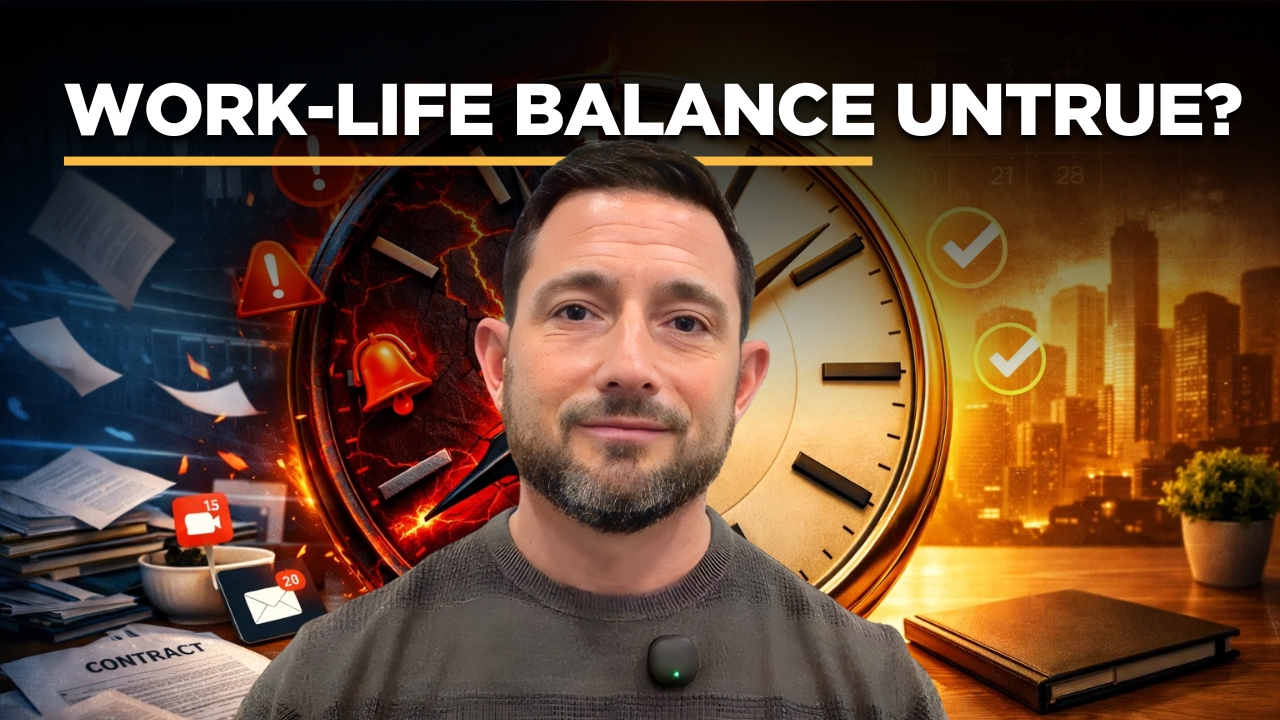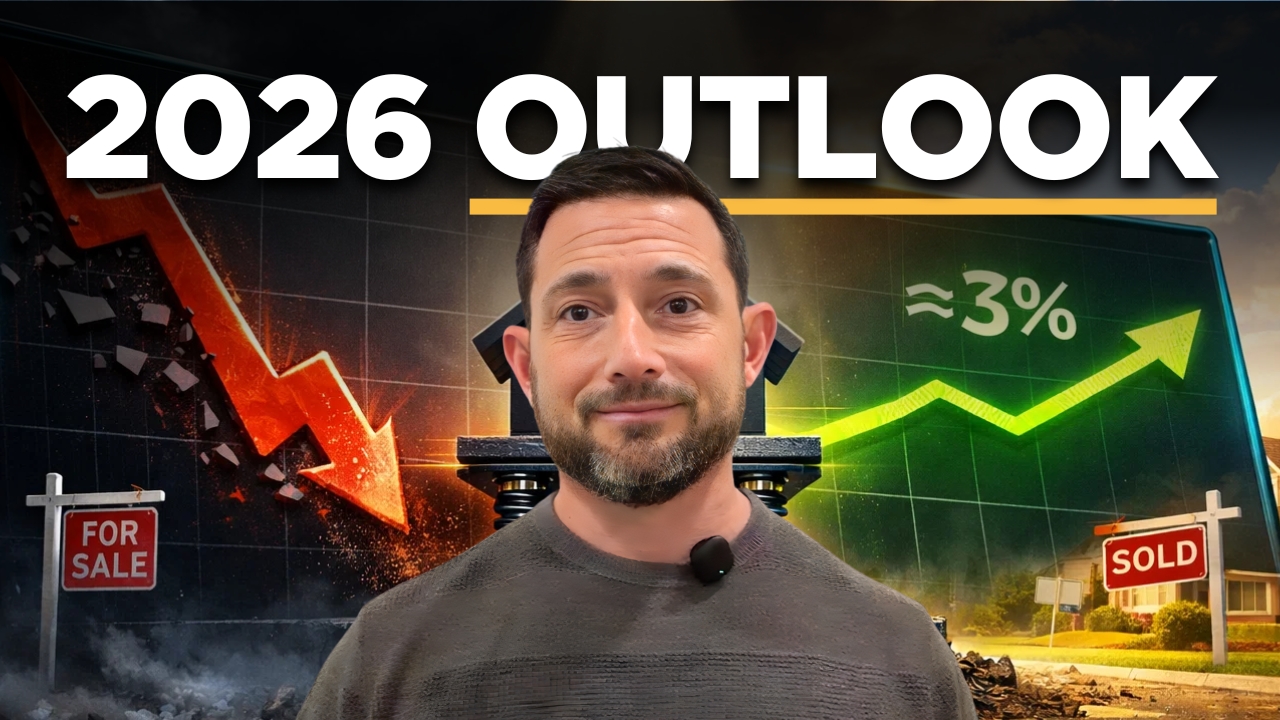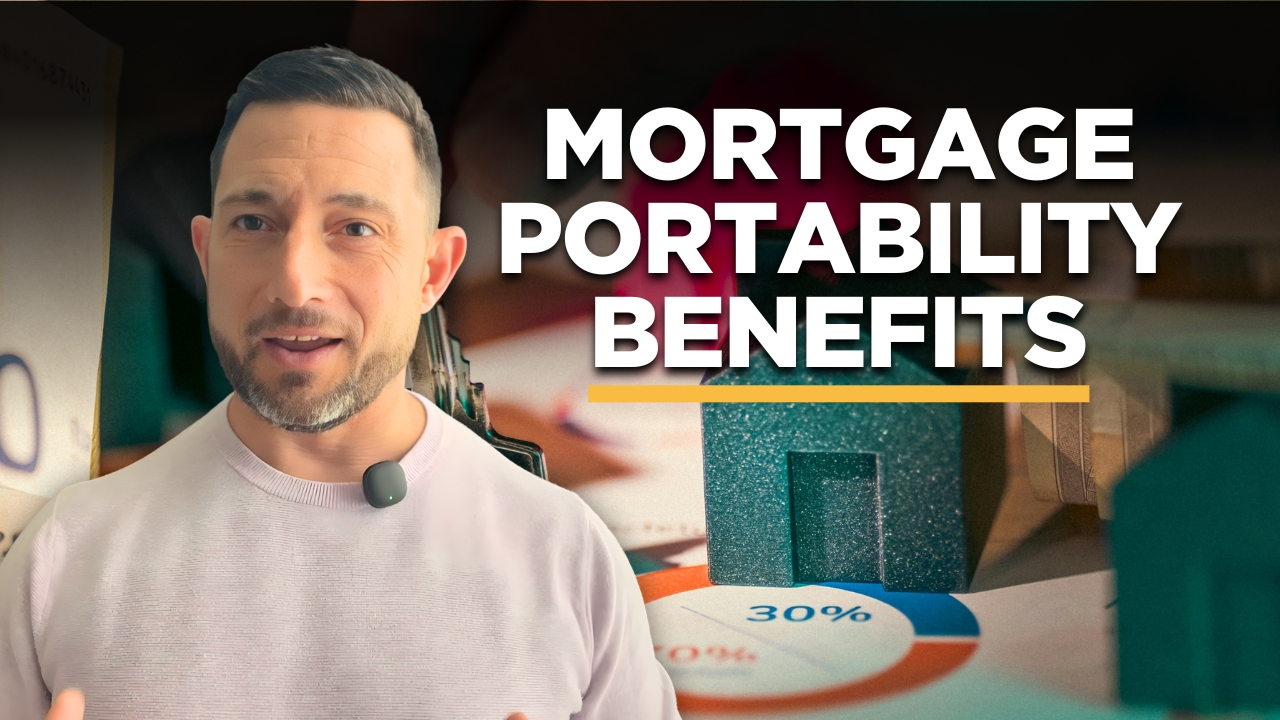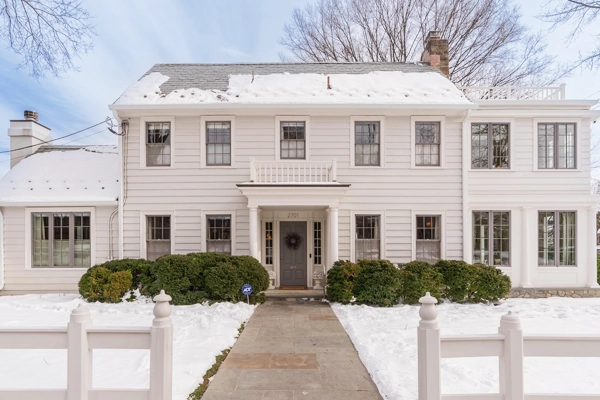When You’re Ready To Be Different. Schedule a strategy call to see how you’re positioned in today’s market. Book a Call
Do you think the housing market is about to crash? You’re not alone in that thought, but it’s not the full picture. Let me start with a story. Last week, I spoke with a friend who has been waiting for the housing market to crash for two years. He’s seen prices rise and is worried he missed his chance to buy.
This fear of missing out, or FOMO, is common. But let me tell you that the housing market isn’t crashing; it’s shifting. If you let fear guide your decisions, you might end up losing more than just your down payment. Let’s set the record straight with these four housing market facts.
1. Panic sells. The internet is filled with conspiracy theories and self-proclaimed experts who use fear to make alarming posts seem credible. Recently, a viral tweet highlighted rising mortgage delinquency rates as evidence that foreclosures were imminent. While this may sound concerning, the data only reflected multifamily mortgage delinquencies, not the overall housing market.
As someone who studies data trends in the economy and real estate, I can assure you that we are not set up for a crash. While buying conditions are not ideal, and the market is indeed imbalanced, prices are expected to continue rising. This situation is driven by supply and demand.
2. The housing inventory crisis. Housing inventory, or the number of available homes for sale, was 4 million in 2007, just before the crash. In 2022, it dropped to a low of 860,000 and currently sits at around 1.1 million. Historically, we should have between 2 and 2.5 million homes on the market, far below that level.
The lack of inventory is the main reason for the affordability crisis we are facing today, not interest rates. Lower rates won’t solve our market issues; they will only increase demand. We need significantly more inventory to balance the market.
Since 2016, we have been about 40% short of the inventory levels seen before COVID-19, and this downward trend has been ongoing. Additionally, the Fed Funds Rate, which banks use to lend to each other, was very low from 2010 to 2016, making borrowing cheaper. Even during the years leading up to COVID-19, new housing construction was at some of its lowest levels in the past 60 years.
3. Low delinquency and foreclosure levels. Delinquencies and foreclosures are currently well below pre-pandemic levels and are near record lows. Looking at the delinquency rate on single-family home loans from 1992 to 2024, there was a significant spike around 2010 during the housing crisis, when the rate nearly hit 11%. Since then, there has been substantial improvement; the delinquency rate has steadily fallen and is now around 2% in 2024. This decline shows that more people are keeping up with their mortgage payments, suggesting that the housing market is becoming more stable.
4. Mortgage lending standards have changed. If you remember the lead-up to the 2008 housing crisis, you might recall the saying, “If you had a heartbeat, you could get a loan.” Many people who shouldn’t have qualified for loans were able to borrow money, often taking on risky loans like adjustable-rate mortgages (ARMs) or no-document loans they couldn’t afford.
Fortunately, we’ve made significant improvements since then. Today, 96% of U.S. mortgage debt is from fixed-rate loans, meaning borrowers won’t face sudden increases in their payments. Additionally, about 40% of homeowners don’t have a mortgage at all. This level of stability is something we didn’t have back in 2008.
The housing market’s condition is volatile right now, and feeling a bit nervous is completely normal. That said, we don’t expect the market to crash unless something unexpected happens in the economy.
If you’re still anxious, that’s okay because it shows you care about making the right choices. I’m here to help, so feel free to DM me, text me at (443) 375-2224, or email me at nick@storyline-homes.com. Let’s connect and explore your options in today’s market.
-
When You’re Ready To Be Different. Schedule a strategy call to see how you’re positioned in today’s market. Book a Call
-
Find Your Home’s Market Position. See how the market has affected your home's value based on key trends happening in your area. Get Estimate
-
Free Real Estate Newsletter. Get our latest Q&A, insights, and market updates to make smarter decisions. Subscribe Now








